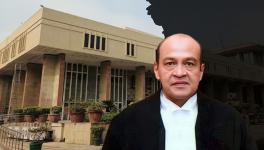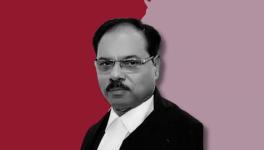Mandatory Publication of Notice of Intended Marriage Under Special Marriage Act Violates Right to Privacy; Allahabad holds it optional
The Allahabad High Court, in a significant judgment, has ruled that the requirement to give public notice for marriage under the Special Marriage Act, 1954 is optional for the parties to the intended marriage.
Justice Vivek Chaudhary held that the interpretation of Sections 6 and 7 read with Section 46 of the Special Marriage Act, containing the procedure of publication of notice and inviting objections to the intended marriage in Act of 1954, has to be such that would uphold the fundamental rights and not violate the same.
“In case the same on their simplistic reading are held mandatory, as per the law declared today, they would invade in the fundamental rights of liberty and privacy, including within its sphere freedom to choose for marriage without interference from state and non-state actors, of the persons concerned”, held Justice Chaudhary.

Justice Vivek Chaduhary.
The Court referred to various decisions of the Supreme Court namely Justice K.S. Puttaswamy (Retd.) and another vs. Union of India and others; Navtej Singh Johar and others vs. Union of India; Shakti Vahini vs. Union of India and others, on the Right to privacy and right to life and said it would be cruel and unethical to force the present generation living with its current needs and expectations to follow the customs and traditions adopted by a generation living nearly 150 years back for its social needs and circumstances, which violates fundamental rights recognized by the courts of the day.
“There is a long chain of decisions growing stronger with time and firmly establishing personal liberty and privacy to be fundamental rights including within their sphere right to choose a partner without interference from State, family or society”, the High Court said.
It also directed to circulate the copy of the judgment to Chief Secretary of the State of U.P. who will forthwith communicate the same to all the Marriage Officers of the State and other concerned authorities as expeditiously as possible for compliance since the matter relates to the protection of fundamental rights of a large number of persons.
The court was hearing a habeas corpus petition filed by the husband of detenue- Safia Sultana, who after converting to Hindu religion and renamed as Simran, married Petitioner no.2 as per Hindu rituals. However, the father of the woman was not permitting her to live with her husband.
Petitioners said that they could have solemnized their marriage under the Special Marriage Act but the said Act requires a 30 days notice to be published and objections to be invited from the public at large. They expressed that any such notice would be an invasion of their privacy and would have definitely caused unnecessary social pressure/interference in their free choice with regard to their marriage.
The personal laws, the petitioner said, did not impose any such condition of publication of the notice, inviting and deciding objections before solemnizing any marriage.
Last year, the Delhi High Court agreed to examine the petition challenging the provision of issuing a public notice to invite objections to marriages under the Special Marriage Act.
The article was originally published in The Leaflet.
Read the Order
Get the latest reports & analysis with people's perspective on Protests, movements & deep analytical videos, discussions of the current affairs in your Telegram app. Subscribe to NewsClick's Telegram channel & get Real-Time updates on stories, as they get published on our website.
























